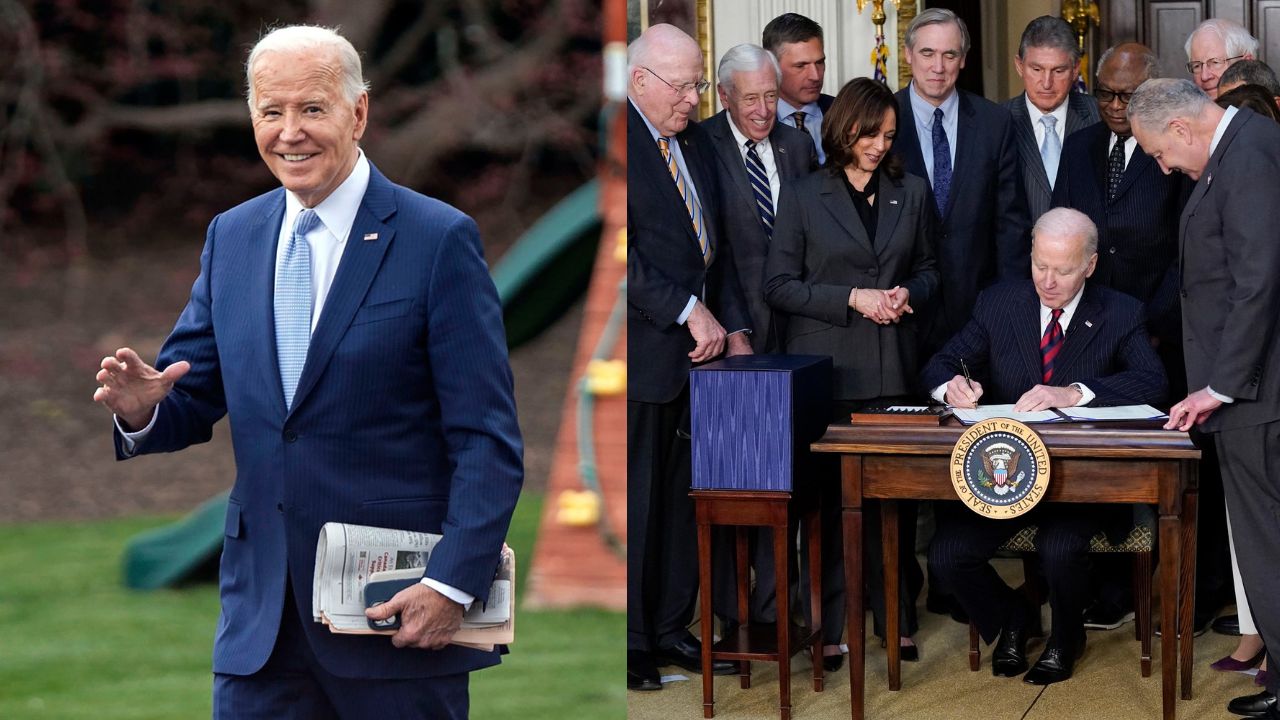President Joe Biden has officially signed Congress’ $1.2 trillion spending package, marking the completion of the final set of bills within a much-anticipated budget to sustain government operations until October 1.
With the president’s signature, the government secures funding for the remaining half of the fiscal year, bringing an end to a protracted period of Congressional struggles to reach a permanent budget agreement. Instead, they relied on short-term measures to stave off government shutdowns.
“This bipartisan funding bill I just signed ensures the government remains operational, invests in the American people, and bolsters our economy and national security,” Biden stated in a Saturday announcement. “This agreement reflects compromise, meaning neither side achieved all of its objectives.”
The weekend’s budget agreement narrowly met the Friday midnight funding deadline, characteristic of this fiscal year’s pattern, where last-minute disputes often derailed nearly completed agreements.
Senate’s Approval and House’s Resolution
In a 74-24 vote around 2 a.m. ET on Saturday, the Senate passed the budget, slightly exceeding the deadline due to unresolved issues at the eleventh hour. Nevertheless, the White House assured that official shutdown protocols would not commence as a deal had been reached, with only procedural steps remaining.
Earlier on Friday morning, the House also voted on the budget after a week of frantic efforts to resolve a persistent obstacle: funding for the Department of Homeland Security, which faced objections from the White House the previous weekend. These concerns from the White House prolonged the negotiation process, coinciding with lawmakers’ preparations to unveil the legislative text of the budget proposal.
Allocation of Funds and Future Implications
This trillion-dollar package encompassing six appropriation bills will allocate funds to various sectors including defense, financial services, homeland security, health and human services, among others. Congress had previously approved $459 billion for the initial six appropriations bills in March, covering agencies that were less contentious and thus easier to negotiate.
Political Ramifications
With the government now funded for the remainder of the fiscal year, House Speaker Mike Johnson, R-La., has successfully tackled one pressing issue. However, in doing so, he may have inadvertently triggered another.
Prior to the House passing the spending package on Friday morning, staunch House Republicans convened a press conference to vehemently criticize the bill. Shortly after the bill narrowly cleared the House, far-right Georgia Republican Rep. Marjorie Taylor Greene wasted no time in filing a motion to remove Johnson from his position.
The scenario of ousting a House speaker over budget disagreements may sound familiar, and for good reason. Last October, former Speaker Kevin McCarthy faced removal after striking a deal with Democrats to prevent a government shutdown, marking him as the first Speaker in history to be ousted from the position. Johnson has been working diligently to pacify the hardline Republican faction of the House, known as the Freedom Caucus, in order to avoid a similar fate.

